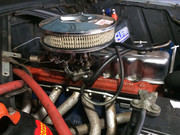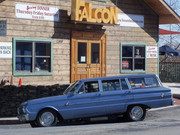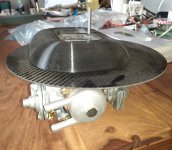Ive been reading the classic inline articles regarding the 2v modification to the log head on a 200 and i am moving in that direction. Its come time to choose a carb however and like so many things with these performance modifications for the 200 the choices are overwhelming and answers are not clear cut.
it appears that classic inlines have high praises for the weber 32/36 and 38/38s......
Ive considered going the holley sniper 2300 route but im on the fence about if the cost really comes out to be worth it in the end, they probably have their own host of potential issues vs a carb......nevermind that somehow it seems sacrilegious to start installing EFI and computer chips into a nearly 60 year old car lol.
does anyone have passionate opinions about the ideal Carb for the 2v conversion????
it appears that classic inlines have high praises for the weber 32/36 and 38/38s......
Ive considered going the holley sniper 2300 route but im on the fence about if the cost really comes out to be worth it in the end, they probably have their own host of potential issues vs a carb......nevermind that somehow it seems sacrilegious to start installing EFI and computer chips into a nearly 60 year old car lol.
does anyone have passionate opinions about the ideal Carb for the 2v conversion????





